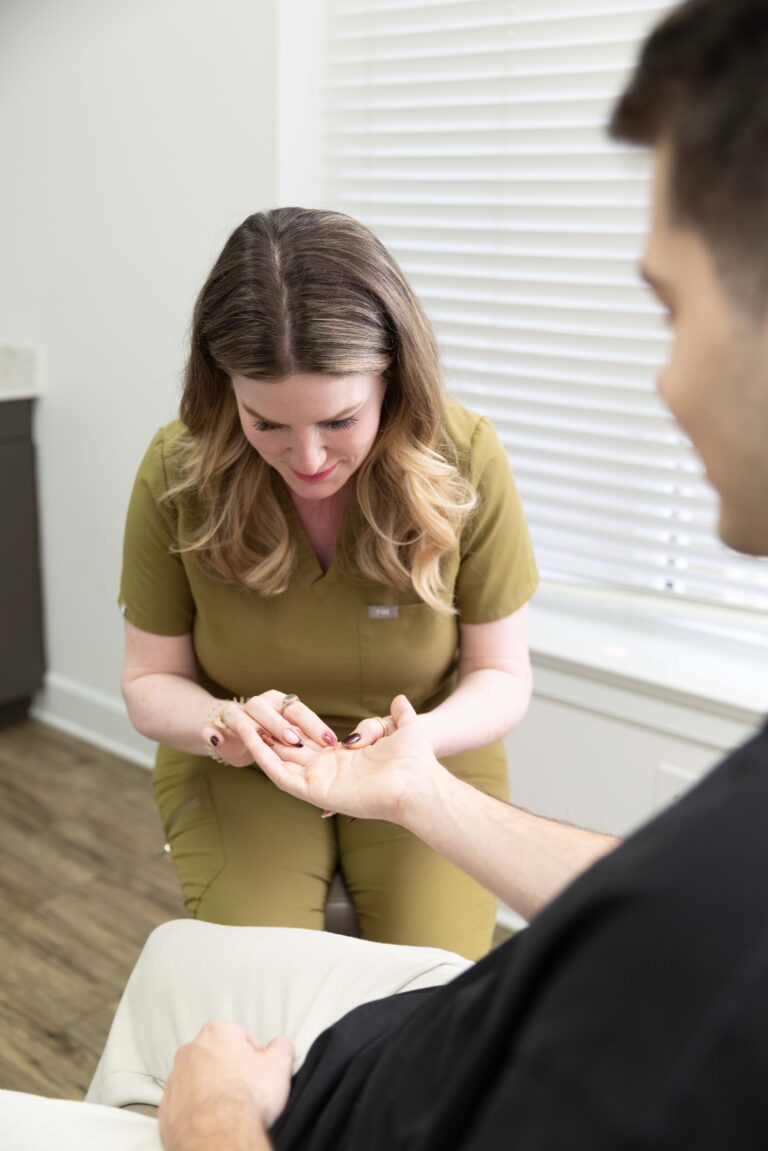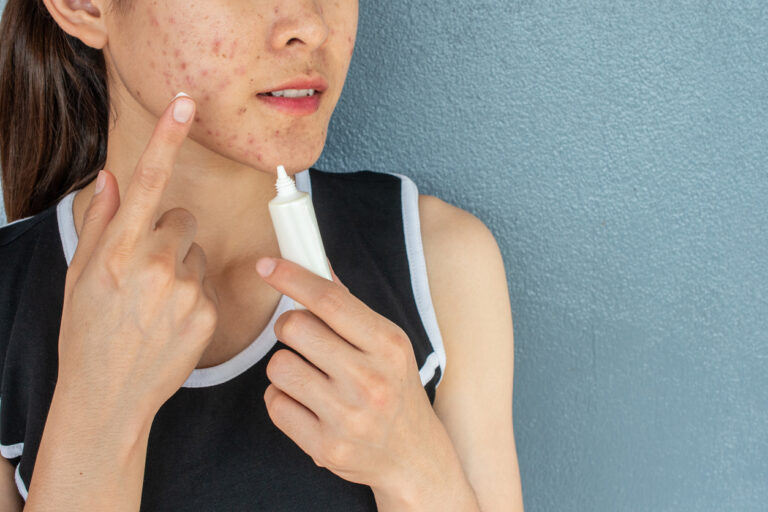Your skin is telling you that something is not right if you have chronic acne. Acne is one of the most common skin disorders and can be found in both adolescents and adults.
Acne can occur when hair follicles become clogged with oil. From hormones to medication side effects, people across the age spectrum can experience this skin disorder.
According to the National Institutes of Health (NIH), the skin’s pores connect to oil glands that produce an oily substance (sebum) that carries dead cells to the skin’s top layer. This oil can “clump” together with tiny hairs and dead skin cells.
The number of bacteria in this clump can grow and result in the formation of a pimple. While some acne pimples are unsightly, they will resolve spontaneously. However, others can lead to scarring.
The Role of Hormonal Changes in Acne
Rapid hormonal changes in adolescents link to increased oily skin on the face, neck, arms, and back. At the onset of puberty, hormones are released, which results in the increased production of testosterone and estrogen.
Adolescent-associated acne resolves once the hormones are balanced. While some adolescents develop little acne, others can develop oozing pimples that feel painful and leave permanent scars.
Adult Acne
A disorder in females linked to acne development in adolescence and adulthood is Polycystic Ovary Syndrome (PCOS). Chronic acne occurs in 10-34 percent of females with PCOS.
Some people undergoing chemotherapy develop an acne-like condition. This needs to be diagnosed and treated differently than hormonally-linked acne.
The Need for Dermatologist Intervention
Unfortunately, there isn’t much any of us can do about our hormonal, genetic composition. Acne can appear despite best efforts and optimal cleaning regimens. However, once acne occurs, it can be managed.
While “over-the-counter” acne treatments may reduce the symptoms in some people with mild acne, others will not respond to such therapy. Using an over-the-counter regimen could make the acne worse. Working with your dermatologist to develop a plan to manage your acne and prevent scaring is one of the best decisions you can make.
Schedule an appointment for a dermatology consultation before treating acne-like symptoms. It is essential to have the best plan for your skin to minimize scarring. According to the American Academy of Dermatology (AAD), an effective treatment plan developed by a dermatologist can result in:
- Clearing acne
- Preventing new scars
- Boosting a person’s mood and self-esteem
Prescribed topical medication is effective in treating a majority of acne. Depending upon your acne type, and if topical medication is not sufficient, your dermatologist can prescribe other treatment options.
Do Not Simply Do Nothing if You Have Acne
Your skin is telling you that something is not right if you have chronic acne. A dermatologist is your best option for diagnosing your skin condition. They also have a wide variety of treatment options to treat your skin and to prevent scarring.
Consider scheduling an in-person or virtual consultation with Dilworth Dermatology and Laser (based in Charlotte, North Carolina) to determine the best treatment plan for your skin.


